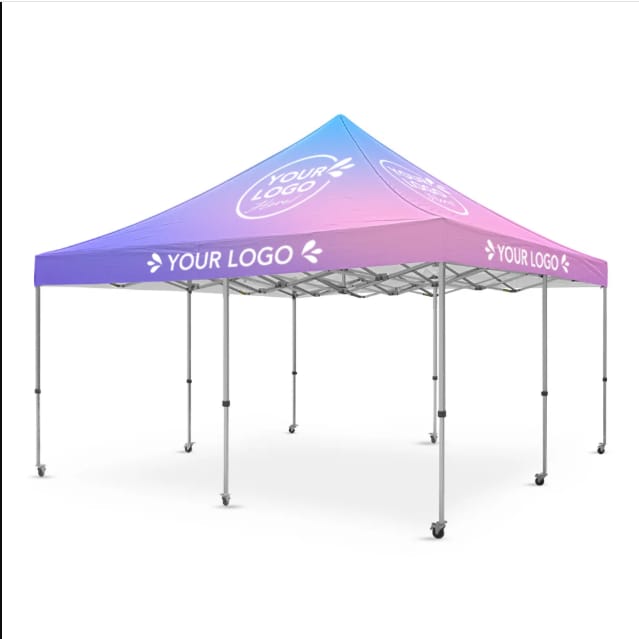
Starting a business comes with a long checklist, and one essential step is obtaining an Employer Identification Number (EIN). Whether you’re a sole proprietor, an LLC, or a corporation, this tax ID is necessary for many business operations. Understanding how EIN tax works can save you time, money, and potential headaches when filing your taxes or dealing with financial institutions. This guide will break down everything you need to know about EIN tax in a simple way.
What Is an EIN?
An Employer Identification Number (EIN) is a unique nine-digit number issued by the IRS to identify businesses for tax purposes. Think of it as a Social Security number for your business. For instance, if you are expanding your service-based business, whether in consulting, marketing, or even niche markets like offering luxury services such as a male escort in Dubai, having an EIN can help you operate legally and ensure compliance with financial institutions. Clients often trust businesses with an official tax ID, and in many industries, it’s a requirement to process payments professionally.
Who Needs an EIN?
Not all businesses require an EIN, but many do. Here’s a breakdown of who needs one:
- Businesses with employees
- Partnerships and corporations
- LLCs that choose to be taxed as a corporation
- Nonprofits and trusts
- Businesses applying for certain business licenses
- Companies dealing with excise taxes
Even if you’re a sole proprietor, getting an EIN is advisable if you plan to scale your business, hire employees, or establish business credit.
How to Apply for an EIN
Applying for an EIN is a straightforward process. The IRS offers multiple ways to do it, and best of all, it’s free. Here’s how you can get one:
- Online Application – The fastest way is through the IRS website. The process takes about 10-15 minutes, and you receive your EIN immediately.
- Mail Application – You can submit IRS Form SS-4 by mail, which takes about four weeks to process.
- Fax Application – Similar to mail, but processing is quicker (usually within four business days).
- Phone Application (for International Applicants) – Businesses outside the U.S. can apply by calling the IRS directly.
Once you receive your EIN, store it securely. You’ll need it for tax filings, business transactions, and other legal matters.
EIN Tax Responsibilities
Having an EIN means you have certain tax obligations. The key responsibilities include:
- Filing Business Taxes – Depending on your business structure, you may need to file corporate tax returns, payroll taxes, or self-employment taxes.
- Payroll and Withholding Taxes – If you have employees, you must withhold Social Security, Medicare, and income taxes.
- Reporting Business Changes – Any changes in business structure, ownership, or name should be updated with the IRS.
- State and Local Tax Compliance – Some states require additional tax IDs, so check your local tax regulations.
EIN vs. SSN vs. ITIN
Many business owners confuse EIN with Social Security Numbers (SSNs) and Individual Taxpayer Identification Numbers (ITINs). Here’s how they differ:
| Type of ID | Purpose | Who Needs It? |
| EIN | Identifies businesses for tax purposes | Business owners, employers, and corporations |
| SSN | Identifies individuals for personal tax purposes | U.S. citizens and permanent residents |
| ITIN | Used for tax reporting by non-U.S. residents | Foreign individuals without an SSN |
If you run a business, an EIN is the best way to establish legitimacy and ensure compliance with tax laws.
EIN and Business Banking
One of the major benefits of having an EIN is being able to open a business bank account. Banks require an EIN to open accounts for corporations, partnerships, and most LLCs. Even sole proprietors can benefit from separating personal and business finances.
A dedicated business bank account:
- Keeps business finances organized
- Builds credibility with lenders
- Helps with tax reporting
- Prevents legal issues by maintaining separation from personal assets
If you plan to apply for business loans or merchant accounts, an EIN is typically a requirement.
EIN and Hiring Employees
Hiring employees means you must have an EIN to report payroll taxes. The IRS requires employers to withhold and submit:
- Federal income tax
- Social Security tax
- Medicare tax
Additionally, you may need to file state employment taxes depending on where your business operates. Without an EIN, legally hiring employees is impossible.
EIN for Non-U.S. Citizens
If you’re a non-U.S. resident but need an EIN for your U.S.-based business, you can apply without an SSN. The process requires submitting Form SS-4 via fax or mail. While the online option is unavailable for international applicants, you can still obtain an EIN by calling the IRS directly.
This is particularly useful for foreign entrepreneurs looking to establish LLCs or corporations in the U.S. Many international business owners use an EIN for tax reporting and banking purposes.
Changing or Canceling an EIN
Once an EIN is issued, it stays with your business permanently. However, if you restructure or dissolve your business, you may need to apply for a new EIN. Common situations requiring a new EIN include:
- Changing from a sole proprietorship to a corporation
- Merging businesses
- Buying an existing business
If you no longer need your EIN, you can request the IRS to close your business account, but the number itself is never reassigned.
Common EIN Mistakes to Avoid
While getting an EIN is easy, many business owners make mistakes when using it. Here are common pitfalls to watch out for:
- Applying for multiple EINs unnecessarily – Only one EIN is needed per business structure.
- Using your SSN instead of an EIN – This can lead to tax complications and mix personal and business finances.
- Failing to update business changes with the IRS – Keep your EIN records up to date to avoid tax issues.
- Ignoring state-level requirements – Some states require additional tax registrations, so check local laws.
Conclusion
Getting an EIN is a critical step in managing your business legally and efficiently. Whether you’re a freelancer, startup owner, or expanding into a regulated industry, having an EIN simplifies tax filings, banking, and hiring. Applying is free and easy, so there’s no reason to delay it. Make sure to keep your EIN secure and stay compliant with tax laws to avoid penalties.
Write and Win: Participate in Creative writing Contest & International Essay Contest and win fabulous prizes.


